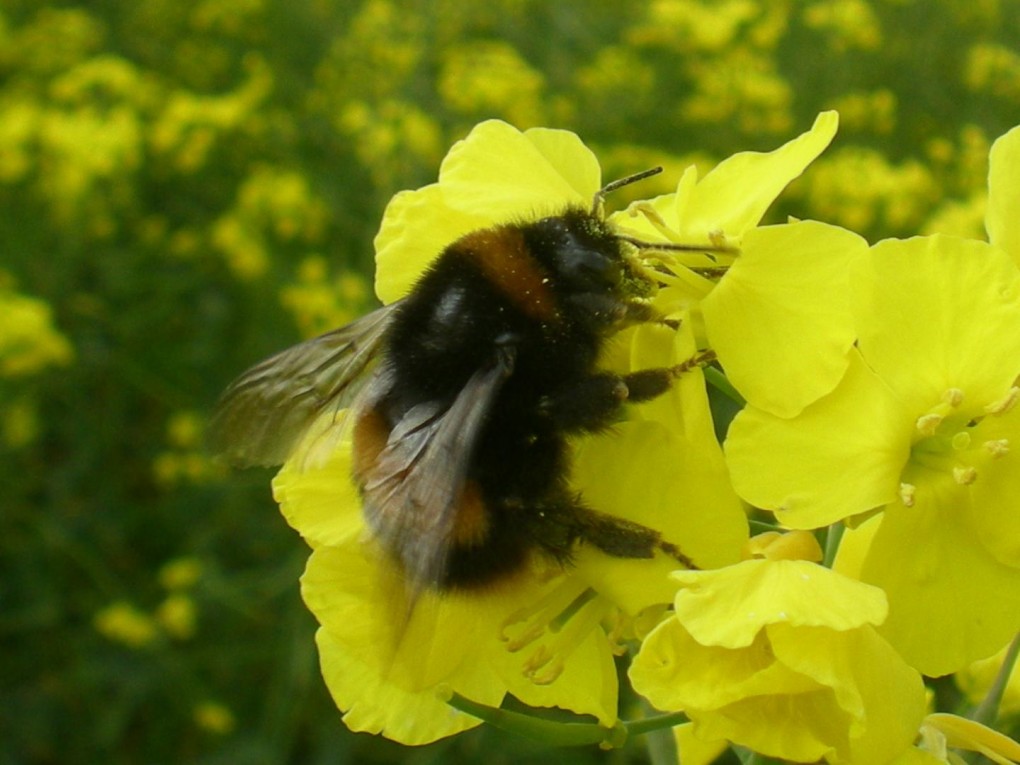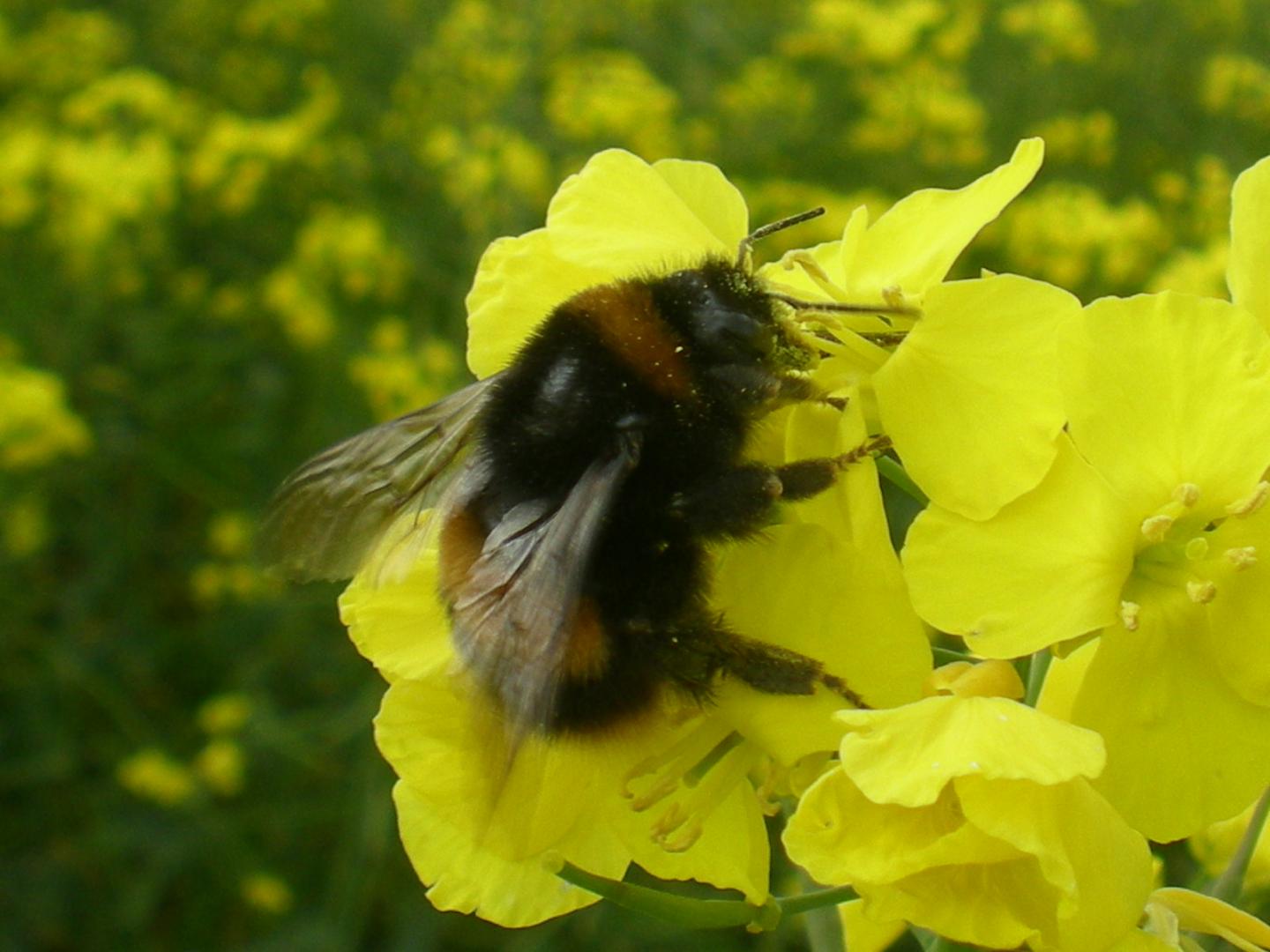How Neonicotinoids Kill Spring Breeding for Bumble Bees
By Heather Callaghan, Editor
It is believed that when a human experiences a threat such as toxicity, body functions that aren’t necessary for survival might go on the back burner until the threat is removed. If this is true, then it turns out that bees experience the same problems.
“Queen bees will only lay eggs when the eggs are fully developed,” says Prof. Nigel Raine, holder of the Rebanks Family Chair in Pollinator Conservation.
According to a new University of Guelph study, published in the journal Proceedings of the Royal Society B, neonicotinoid pesticides hinder wild queen bumblebee’s reproductive success.
Raine says if queens need to use energy to clear pesticides from their system instead of investing in eggs, there will be fewer fully developed eggs. “This will likely translate into slower egg-laying rates, which will then impede colony development and growth.”
Widget not in any sidebars
Whereas most stories focus on neonics as a vague class of pesticides – this study is the first to link exposure to thiamethoxam – one of the most widely used neonicotinoids – to fewer fully developed eggs in queens from four wild bumblebee species that forage in farmland.
University of Guelph reported:
The researchers examined the impacts of exposing queen bumblebees to thiamethoxam during the spring when they emerge from hibernation and are preparing to lay their first eggs and establish a colony.
“Given the vital role spring queens have in maintaining bumblebee populations, we decided to focus on assessing the impacts at this stage in the life cycle,” said Raine, a professor in the School of Environmental Sciences. “These spring queens represent the next generation of bumblebee colonies.”
Worker bees from those first eggs are needed to clean and guard the nest, find food and tend to the next batch of eggs. Without those workers, the colony will likely fail, said Raine.
For the study 500 queens were captured in the spring and “fed syrup treated with pesticide doses similar to levels found in pollen and nectar in the wild.” Unfortunately, they were compelled to dissect the queens to examine pesticide levels.
After being exposed to thiamethoxam, two of the species ate less nectar. Across all four species the queen bees that were given higher doses of thiamethoxam had smaller, less-developed eggs than the ones not exposed.
Raine said:
If their feeding rates drop off, the queens go into a dormant state. They won’t have enough energy to fly or to collect pollen to feed their larvae. They may not even have enough resources to lay eggs.
The fact that queen feeding behavior was impacted by exposure to thiamethoxam in only two of the four bee species highlights the reality that sensitivity to pesticides differs among bee species.
Burn belly fat by avoiding this one food (Ad)
Most of the work to determine levels of toxic exposure to pesticide has used honeybees as a model pollinator. But our findings show that bee species vary in their level of sensitivity to pesticides, which is important information that should be factored into regulatory decisions on these chemicals.
Raine ultimately suspects that the metabolic costs associated with the detoxification required from pesticide exposure eventually lowers nutrients available for other biological processes such as egg development.
As sad as this realization is for bees breeding in springtime, it sort of makes you wonder about the metabolic costs for humans unwittingly recovering from pesticide exposure. It makes you wonder why there are fertility clinics everywhere now…
Natural Blaze / CC SA-4.0 / eBook / Image
 Heather Callaghan is an independent researcher, writer, speaker and food freedom activist. She is the Editor and co-founder of NaturalBlaze as well as a certified Self-Referencing IITM Practitioner.
Heather Callaghan is an independent researcher, writer, speaker and food freedom activist. She is the Editor and co-founder of NaturalBlaze as well as a certified Self-Referencing IITM Practitioner.
Get a nifty FREE eBook – Like at Facebook, Twitter and Instagram.




